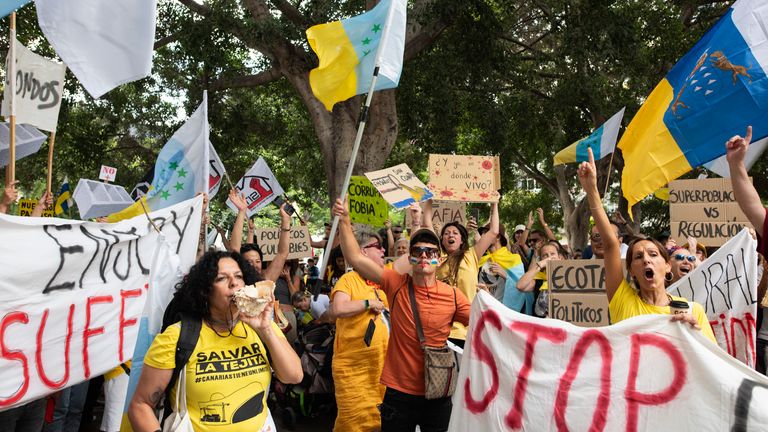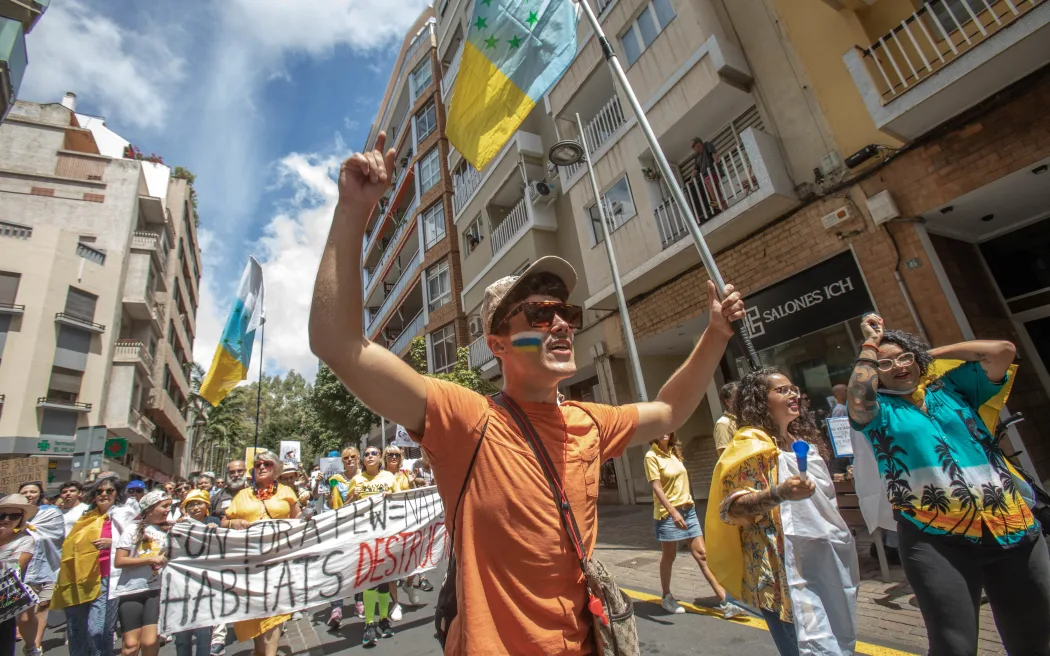Tens of thousands of demonstrators marched through the streets of the Canary Islands, rallying against the pervasive impact of mass tourism on the archipelago, as reported by Al Jazeera.
The protests, which began at noon on Saturday (11:00 GMT), saw approximately 57,000 participants, according to Spanish media citing the central government’s representative in the islands.
Protesters across all seven islands carried banners and signs proclaiming, “A moratorium on tourism,” “Canary Islands are not up for sale,” and “Respect my home.” These slogans highlighted the widespread discontent with the current tourism model, which they argue compromises both the local environment and the community’s well-being.

The call to action was initiated by about twenty social and environmental organizations. They propose several measures to curb the negative effects of tourism, including implementing an eco-tax, establishing a moratorium on new tourist developments, and restricting the sale of properties to non-residents.

According to Al Jazeera, the Canary Islands, home to 2.2 million residents, welcomed nearly 14 million foreign visitors in 2023—an increase of 13 percent from the previous year. This surge in tourism has sparked concerns among local authorities about its sustainability and the repercussions for residents.
Fernando Clavijo, the President of the Canary Islands, expressed his pride in the islands being a premier Spanish travel destination. However, he acknowledged the need for further regulations to manage the burgeoning industry, indicating a recognition of the challenges posed by the rapid growth of tourism.



